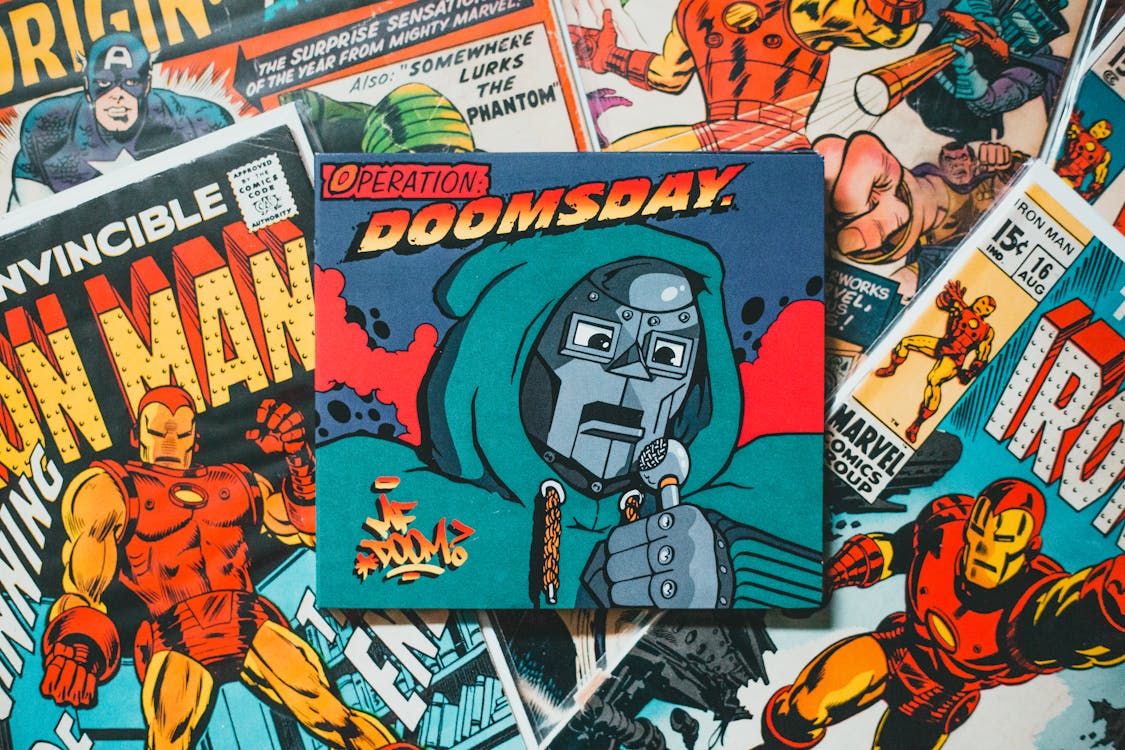Superheroes used to exist only in comic book pages, where they told vibrant, somewhat corny tales of good vs evil. Nobody could have predicted, however, how these fantastical characters would eventually leap from the pages to the big screen and forever alter the cinema industry. Let’s take a look back at the superhero movie’s modest origins and follow its development from Saturday morning serials to the worldwide cinematic phenomenon it is today.
Superheroes were still very much in their infancy in the 1940s, when it all began. The 1941 animated Superman series was the first serious attempt to depict a superhero on screen. In the 1940s, when it all started, live-acting superheroes were still very much in their infancy. The first significant attempt to portray a superhero on screen was the 1941 animated Superman series. One of the first live-action serials, The Adventures of Captain Marvel (1941), focused on a courageous young man who could transform into the formidable Captain Marvel with a single word. These early adaptations were simple affairs, mostly low-budget weekend serials aimed mostly at youngsters.
However, you could sense the beginning of something greater even in those early days. Audiences were already responding favorably to the idea of heroes battling villains while soaring through the air, laying the groundwork for something far more ambitious.
The 1960s marked the beginning of a new age for superheroes. Batman (1966) became a pop culture phenomenon on television. Though it was very different from today’s brutal superhero storylines, its campy comedy, outrageous antagonists, and vibrant sets helped popularize comic book heroes. For a while, the Batman TV series was sufficient to show viewers the funnier, lighter side of superheroes.
Then, however, a significant event occurred: the release of Superman: The Movie (1978). This was the first real attempt to give a superhero film the majesty, respect, and sincerity one would anticipate from a major motion picture. Superman, starring Christopher Reeve and directed by Richard Donner, raised the standard. It was about a man attempting to find his place in the world while juggling identity, responsibility, and loss; it wasn’t just about a guy who could fly.
It became evident from the film’s fusion of intense action and profound emotion that superhero movies could be more than merely comic book adaptations. They were also able to tell authentic, human stories.
The tone of superhero movies started to become significantly darker and more mature by the 1980s. Batman (1989), directed by Tim Burton, changed the game. It was a stylish, evocative dive into Gotham’s grim underside, not just a film about a man in a cape. When combined with Michael Keaton’s sullen Batman, Burton’s vision gave superhero movies a fresh perspective. It was dramatic, somber, and oddly lovely. The darker side of heroism was explored without fear, and this became a recurring subject in future superhero films.
At the same time, films such as Blade (1998) shown that superheroes didn’t need to be flawless. Blade, an antihero and half vampire, didn’t mind getting his hands filthy. His violent, R-rated exploits opened the door for darker, more intricate tales to follow by demonstrating that superhero films could be a bit more mature.
Then the 2000s rolled around, and the popularity of superhero films really took off. Marvel’s mutant heroes made their big-screen debut with X-Men (2000). Superhero movies were being taken seriously for the first time; they were no longer merely villains and sidekicks but rather multifaceted individuals battling with issues of identity, alienation, and social expectations.
However, Iron Man in 2008 was the pivotal event. The most successful movie franchise ever, the Marvel Cinematic Universe (MCU), began with Iron Man, which was directed by Jon Favreau and starred Robert Downey Jr. It was more than just a film about a brilliant millionaire who creates a suit to battle evildoers; it was a very human tale about accountability, atonement, and the price of power. Additionally, the appearance of Nick Fury (Samuel L. Jackson) in the post-credits scene suggested something much more significant: a common universe of heroes who are all interconnected and bound for even greater things.
Audiences had never seen this integrated picture universe before, beginning with Iron Man and progressing through Thor, Captain America, The Avengers, and beyond. The Marvel Cinematic Universe was more than just a single movie; it was a universe spanning several tales that culminated in a single, significant event. The excitement was infectious and gave you the impression that you were a part of something greater.
Superhero films were a worldwide sensation by the 2010s. After the groundbreaking crossover of Marvel’s heroes in The Avengers (2012), new heroes and cultural themes were introduced in movies like Guardians of the Galaxy (2014) and Black Panther (2018). Man of Steel (2013) marked DC’s foray into its own cinematic world. Although it did not achieve the same level of popularity as Marvel, movies like Wonder Woman (2017) and Aquaman (2018) demonstrated DC’s ability to tell compelling storylines. Then, Joker (2019) reshaped the genre by emphasizing the antagonist instead of the hero, demonstrating that superhero films could tackle more difficult, nuanced subjects. The superhero genre is obviously always changing, as evidenced by shows like WandaVision and The Boys that are pushing the envelope.
Superhero movies have come a long way from their action-packed roots. What started as simple good vs. evil stories has grown into something much more compelling. Now, we’re not just watching epic battles; we’re seeing heroes struggle with who they are, face tough moral dilemmas, and question what it means to be truly heroic. These films have become richer, deeper, and more relatable than ever before. With each new release, the genre keeps raising the bar, bringing us fresh characters, unexpected twists, and mind-blowing visuals. The future of superhero movies is looking brighter than ever—and I don’t know about you, but I can’t wait to see what’s next. The adventure is far from over, and we’re all in for the ride!
How do you feel about this whole thing? What are your thoughts on the evolution of superhero films over time? Do you still like the simpler, action-packed movies of the past, or are you more drawn to the intricate, emotionally charged stories we’re seeing these days? I’d love to know what you think, but it’s amazing to see how the genre has developed. What do you hope to see most in superhero movies going forward?

